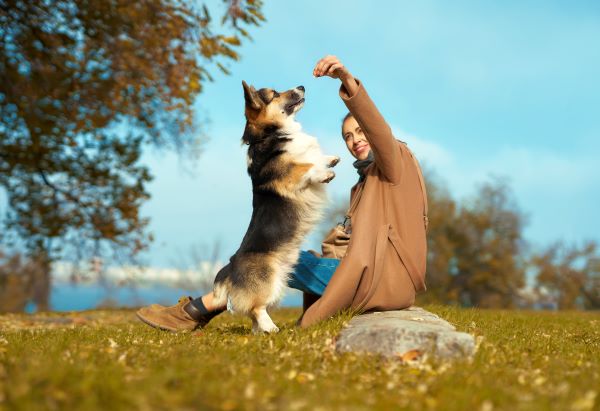Unlocking Your Canine Companion’s Potential: A Guide to Effective Dog Training for Ages
Bringing a new dog into your life is an exciting journey, filled with anticipation and the promise of loving companionship. As pet parents, one of the most crucial aspects of nurturing a well-behaved and happy furry friend is training. But the question that often arises is, “What is the best age for dog training?” The truth is, there isn’t a single magic age, but rather a spectrum of ideal times and approaches depending on your dog’s developmental stage. Understanding these phases and how to utilize them for training best is key to fostering a strong bond and ensuring your dog integrates seamlessly into your family. For comprehensive care and a stimulating environment while you’re away, consider the trusted services of Safe Journey Dog Boarding, a premier dog daycare in Portland.
The Developmental Stages of a Dog
Just like humans, dogs go through various developmental stages, each presenting unique opportunities and challenges for training. Recognizing these periods is fundamental to practical dog training.
The Puppy Stage (8-16 Weeks) is arguably the most crucial time for a puppy’s development. Puppies at this age are like sponges, soaking up information about the world around them. Socialization is paramount during this period; exposure to various sights, sounds, people, and other well-behaved dogs is vital. This helps them develop crucial social skills and prevents the development of fear-based behaviors later in life. Safe Journey Dog Boarding offers an ideal environment for safe social interactions, where puppies can play with other daycare dogs under the watchful eyes of attentive staff. This is also a prime time for establishing a basic obedience foundation through short, positive training sessions focusing on commands like “sit,” “stay,” “come,” and “leash manners.” Their short attention spans necessitate brief, frequent training. Furthermore, this is the prime time to establish consistent house training routines.
Ready to Unleash a More Confident Pup?
Explore Dog Daycare in Portland Today!
As puppies mature into adolescence (4-18 Months), they often experience a “rebellious” phase. This period can be challenging, but also offers significant opportunities for advanced training. Adolescent dogs may begin testing boundaries and exhibit increased independence, making consistency and patience from pet parents crucial. These dogs typically have boundless energy levels, so regular physical exercise and mental exercise through training games and enrichment activities are essential to prevent destructive behaviors. This stage is also an excellent time to refine basic obedience and introduce more complex commands, as well as agility exercises.
Even adult dogs (1.5 Years and Up) can learn new tricks! Although the critical puppy socialization window has passed, adult dogs remain highly capable of learning and benefiting from training. This is an opportune time for behavioral modification, helping to correct unwanted behaviors that may have developed over time. Many adult dogs also enjoy advanced training, such as scent work or other canine care activities that provide mental stimulation. Maintaining skills through ongoing training helps to reinforce good habits and sustain a dog’s cognitive function. Regular daycare at Safe Journey Dog Boarding can provide a stimulating and engaging environment to keep their minds and bodies active.
Benefits of Early and Consistent Training
Training a dog from a young age and maintaining that consistency throughout their life offers a multitude of benefits for both the dog and their human companions.
Enhanced Social Skills and Behavior are significant outcomes of early socialization and training. Well-socialized dogs are generally more confident, less fearful, and better able to interact appropriately with other dogs and people. This is especially evident in a vibrant environment like our clean dog daycare at Safe Journey Dog Boarding, where dogs have plenty of opportunities for socialization and positive social interactions. Dogs with good social skills are less likely to develop fear, aggression, or anxiety.
Improved safety and management for your dog is another key benefit. A well-trained dog is a safer dog; commands like “come” and “stay” can be life-saving in potentially dangerous situations. Training also allows for better management of your dog in various settings, from walks in public to visits to the veterinarian. Knowing your dog will respond to commands provides pet parents with peace of mind.
Training is also a powerful tool for building a stronger bond between dog and owner. The time spent together, the positive reinforcement, and the clear communication fostered through training create a deeper understanding and connection. This individual attention strengthens the relationship, making your furry friend an even more integrated part of the family.
Mental stimulation and fulfillment are crucial for a dog’s well-being, and training provides essential mental exercise. Learning new commands, solving puzzles, and engaging in confidence-building activities can be just as tiring and fulfilling as physical exercise. A dog that is mentally stimulated is often happier and more content, less prone to boredom-induced destructive behaviors.
Finally, dogs accustomed to training and learning generally exhibit better adaptation to new environments and situations. This is particularly beneficial when considering options like dog daycare in Portland, where your furry family member will encounter new sights, sounds, and canine companions. At Safe Journey Dog Boarding, our modern dog care destination provides a safe, comfortable, home-style environment for all our daycare dogs, ensuring they have a fantastic time in a secure daycare facility.
How to Approach Dog Training at Different Ages
Approaching dog training with an understanding of your dog’s age and developmental stage will yield the most effective results.

When training puppies (8-16 Weeks), it’s vital to keep sessions short and positive. Puppies have short attention spans, so aim for 5-10 minute training sessions, several times a day. Always focus on positive reinforcement, using treats, praise, and toys to reward desired behaviors, and avoid punishment to prevent fear and anxiety. Prioritize socialization by enrolling your puppy in puppy socialization classes or arranging controlled playdates with vaccinated, friendly adult dogs; this will significantly benefit their social skills. Start with basic commands such as “sit,” “stay,” “come,” and “down,” and begin leash training early. Establishing a routine is key for house training and developing good habits.
For training adolescents (4-18 Months), consistently reinforce basic obedience. Please don’t assume your adolescent dog remembers everything from puppyhood; continue practicing fundamental commands to reinforce their recall. Address any new unwanted behaviors promptly, consistently, and patiently, seeking professional help if necessary. Provide ample exercise to help them burn off their boundless energy through regular physical activity. Our spacious daycare facilities offer an engaging environment with indoor play space and outdoor play yards. Introduce distractions during training to solidify their understanding of commands in various settings. Once basic obedience is solid, you can explore more advanced commands or even participate in dog sports.
When training adult dogs (1.5 Years and Up), patience is paramount. While adult dogs may take longer to unlearn old habits or learn new ones, they are absolutely capable. Identify what motivates your adult dog—be it treats, toys, or praise—and utilize those as rewards. If teaching a new, complex behavior, break it down into smaller, manageable steps. If your adult dog has specific behavioral challenges, consider consulting with a professional dog trainer or a facility like Safe Journey Dog Boarding that has experience addressing special needs and behavioral issues. Continue providing mental stimulation, even if your adult dog knows many commands. Challenge them with new tricks, puzzle toys, or a regular day at daycare for continued social interactions and mental exercise. We aim to provide a high level of care for all care dogs at our facility, whether it’s for half-day or full-day daycare.
Safe Journey Dog Boarding: Your Partner in Dog Daycare in Portland for Lifelong Training Success
Ultimately, the “best” age for dog training isn’t a singular moment, but rather a continuous journey that begins in puppyhood and continues throughout a dog’s life. Early socialization and foundational obedience set the stage for a well-adjusted companion, while ongoing training reinforces good habits and provides essential mental stimulation. Regardless of your dog’s age, consistency, positive reinforcement, and patience are the cornerstones of successful training. For pet parents seeking reliable, accommodating care and a stimulating environment for their furry friends, Safe Journey Dog Boarding is a top-tier dog daycare in Portland, dedicated to providing a safe, engaging, and enriching experience for dogs of all ages and needs. We also offer specialty dog care and boarding services, including overnight boarding and kennel-free options, to ensure comprehensive care.
Ready to Unleash a More Confident Pup?
Explore Dog Daycare in Portland Today!
Frequently Asked Questions About Dog Training
Connect With Us
Phone: (503) 209-0177
Location: 3525 SE Milwaukie Ave, Portland, OR 97202
Socials: Facebook

